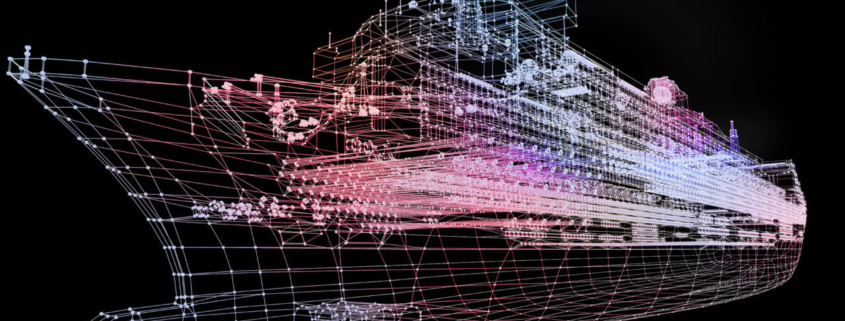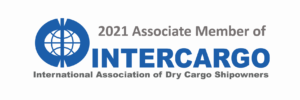Automation & Seafarers: The end of a profession, or its evolution?
As automation is becoming an integral part of everyday life, the shipping industry makes no exception. Mr. Dimitrios Lyrakos, Chief Executive Officer, ASCOT Consulting LTD, describes how automation will affect the maritime sector, saying that the number of seafarers will decline, but these changes will create new job opportunities as well.
What does it mean for the maritime industry?
Over the past few years, we have seen articles and videos of autonomous vessels. Does that mean that seafarers will be a profession of the past in the coming years? Is it possible, one of the most ancient professions to be lost? And where does it leave the millions of seafarers, crew operators and every other field that is associated and even depends on the existence of seafarers?
Based on my experience, and the experience of others, we have to admit that the maritime industry, although gigantic, is probably the most resistant in technological advances. This is understandable though, if you consider that the history of the maritime profession is lost literally in the ages, since the dawn of mankind. Nevertheless, change is inevitable, regardless of if me like it or not, if we agree or not and if we admit that it is coming or pretend that nothing is happening.
There are different theories about how the modern automated vessels will be. However, although the theory of a fully automated vessel with drowns for engineers and only two or three people monitoring it in hubs, is impressive and very Star Trek or Star Wars like, depending on your preference, is still decades ahead. Personally, I believe that the next generation of autonomous vessels will be remotely controlled. Meaning that it will have crew, almost certainly smaller than today and it will be on a control center, managing the vessel from there. This belief is based on the development of automated trucks and airplanes. Modern models of trucks are capable to park, unpark, maintain speed, evaluate the condition of the driver, and even make driving corrections, very much like modern cars. Personally, sometimes, on long trips I feel useless, since the only thing I have to do is to hold the wheel. As a matter of fact though, if I did not, it is highly unlikely that I would reach safely my destination. It is believed that in a few years we will witness the first driverless cars and trucks, much like some buses that are in some cities around the world. Even those models though are controlled by a hub and are supervised by persons.
In aviation the technological advancements are even greater. Have in mind that, in comparison to the maritime industry, aviation is more prone to embrace change and any new technology that will improve efficiency and safety. Nowadays, modern planes can take off, fly, make course corrections and land on their own, without the interference of a human pilot. But who of us would feel comfortable to fly with a plane that does not have a pilot? I most definitely would prefer to walk. It is my firm belief that aviation and maritime are closely connected, more than any of us could imagine. Both industries are considered to be high on risks of accidents and every accident has many severe consequences, on human life and ecology. So how can a crewless vessel operate? From the possibilities that I see before me, I believe, that in the coming decades the profession of the seafarers will not get extinct, but it will reduced and significantly change in terms of demands. The only condition for that is the ability and determination to acknowledge the coming changes and involve. To be fair, the first that needs to evolve are the crew operators, manning agencies, training centers etc. as it is illogical to demand change from a professional, who has no idea how to do it and why, without providing to them with the necessary tools. No one can blame a seafarer, who is used to operate in a specific way and now it is asked from him to embrace new technologies, that they do not know, no one has showed them how to adapt, is scared that will take their job and most importantly do not understand why! These in combination and fear that “I will be replaced by a computer” makes everyone resistant and negative to change because it creates fear and insecurity that one day will be obsolete.
Seafarers in order to survive the coming changes need to evolve, which means that we need to change their training, technical and mental. We need to prepare them, if not obligated to do so, to be ready for these changes, in order to be efficient and to feel safe for their job position. There is a necessity to modernize the curriculum and change our demands and expectations from the seafarers, emphasizing that will ensure their job. While talking to a very experienced master, he described me that when ECDIs first appeared, it was met with skepticism if not dismissal, because there was the misconception that will make eventually officers obsolete. Nowadays it is unthinkable to be onboard a vessel with out ECDIS, or an officer not to be trained on this system.
What does it mean in terms of jobs?
Personally, I believe, based on similar situations in the past on other industries that inevitably the number of seafarers will decline. There is nothing that we can do about that. At the same time these changes will create new job opportunities as well, like before. It is certain that the number of required seafarers to operate a vessel safely and efficiently will be reduced with the remote controlled vessels, even if it is required to have a few onboard for safety purposes. This excess number of seafarers that will have trouble to find job, will be forced to find other field of occupation on the new opportunities that will rise. For example cyber security is a relatively new term and it seems that on maritime it is still on the beginning. We have a duty to help current and future seafarers to help them familiarize with these concepts and technologies, to be more efficient and easily employable.
Another important change that is already taking place and will be even greater the coming years is the type of seafarer that is needed, in terms of training, knowledge and personality-behavior. I do not presume to know about the first two so I will avoid making any comments. I can speak about the last one, personality-behavior. The type of seafarer has changed significantly over the past few years and it will go on changing even more. The soft skills that was a “nice to have trend” on a seafarer is no longer a necessity. Characteristics like efficient problem solving, in terms of personality trait, not only ability, flexibility in change, adaptability and many more are becoming of paramount importance in maritime. Much like the demands on pilots that they have almost totally changed in aviation over the past few decades. The need for a creation of an effective personality profile of a seafarer, taking into account cultural difference, work problems and challenges will rise soon.
Concluding, change, although scary and difficult is inevitable. It is my firm belief that on a profession that challenges are everyday life, hardships are part of the job description and resilience is an absolute necessity. The automated vessels will have a significant impact but it will not signify the end of this noble profession ( provided of course that all involved parties will get prepared for the coming “storm”). Every change is difficult, confusing ,scary and seems unnecessary, but is unavoidable and the only requirement is to adjust as affectively as we can. So we need to prepare the new generation of seafarers now, today and this means that we need to make adjustments ourselves before we demand they reinvent the wheel. History has shown that when you foresee, acknowledge the coming change and prepare yourself for it, you thrive. If you pretend that nothing is happening, when it will come you with just, if at all survive.
We must as trainers, assessors and crew operators to adapt as service providers to change and evolve, in order to be able to pass on these changes to the seafarers. We are the ones that will guide them, through those difficult waters. Let us make it right!
By Dimitrios Lyrakos, Chief Executive Officer, ASCOT Consulting LTD
This article was originally posted on www.safety4sea.com





